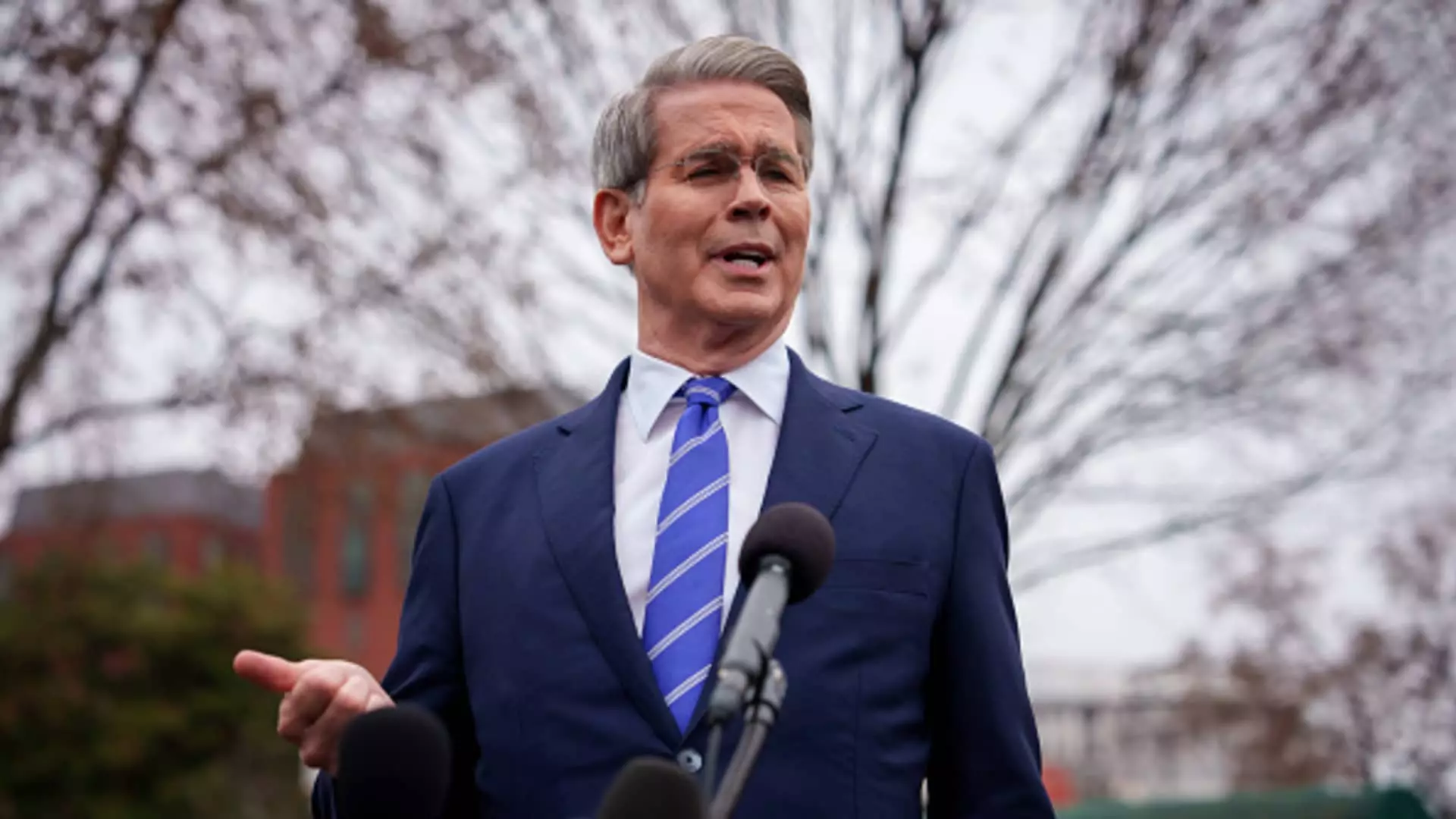The recent turmoil within the stock market, particularly the plummet of technology stocks, has raised eyebrows among economists and investors alike. Treasury Secretary Scott Bessent insists that rather than protectionist policies under President Trump, the primary catalyst is the unsettling emergence of DeepSeek, a Chinese AI startup. While Bessent’s viewpoint might seem to diminish the impact of political decisions, attributing the downturn primarily to a foreign company’s innovations undermines the complexities of our economic landscape. DeepSeek’s competitive technology indeed raises a red flag, but reducing the analysis to this singular event is an oversimplification that could lead to dangerous future miscalculations.
The Major Players Stumble
The Magnificent Seven—companies like Apple, Amazon, Tesla, Alphabet, Microsoft, Meta, and Nvidia—have long been the stalwarts of the technology sector. Their plummet into correction territory has demonstrated an undeniable vulnerability. Bessent’s assertion that the Nasdaq’s decline is a result of an external challenge rather than internal failings overlooks crucial signs of market fatigue. This reckoning is more than a fleeting market correction; it’s a call to action for these tech giants to reassess their business models and adaptation strategies. Heavy investments in AI are meaningless if they don’t translate into tangible benefits or market leadership.
Tariffs: An Underestimated Influence
While Bessent tries to separate tariffs from market dynamics, it is naive to completely disregard the ramifications of President Trump’s aggressive “reciprocal tariff” policy. To think that the sudden imposition of 10% duties wouldn’t reverberate through the markets is wishful thinking at best. With the S&P 500 losing upwards of 4% overnight, Bessent’s reassurances appear to underestimate the psychological impact turbulent policies exert on investors. Tariffs don’t just affect raw numbers; they instigate an air of uncertainty that can lead to fear-motivated selling, driving markets down further.
Investor Sentiment: The Invisible Hand
Investor confidence remains fraught with anxiety as external and internal pressures converge. The collective mindset on Wall Street crucially dictates market movements and is tightly woven with political actions. The very notion of a recession—once rare—now lingers ominously in the air. It’s simplistic to chalk up the market’s woes to a tech-driven narrative; the broader socio-economic environment coupled with protectionist measures interplays with investor sentiment to create a volatile market landscape.
The Road Ahead: Opportunities Amidst Chaos
Though the outlook appears grim with corrections threatening further losses, there is potential for rejuvenation. History has shown us that market downturns often prompt innovation and adaptability in major players. The real challenge lies in harnessing this chaos for constructive pivots. It would be prudent for companies to reflect deeply on these unsettling developments and proactively innovate, rather than relying solely on government policies to shield them from market fluctuations.
The current state of the market transcends mere economic principles; it is a manifestation of how various factors—including international competition and domestic policies—interact to provoke wider ramifications. Now, more than ever, the U.S.’s response must prioritize resilience and adaptation to usher in a new era of economic stability amidst a shifting global landscape.

Leave a Reply